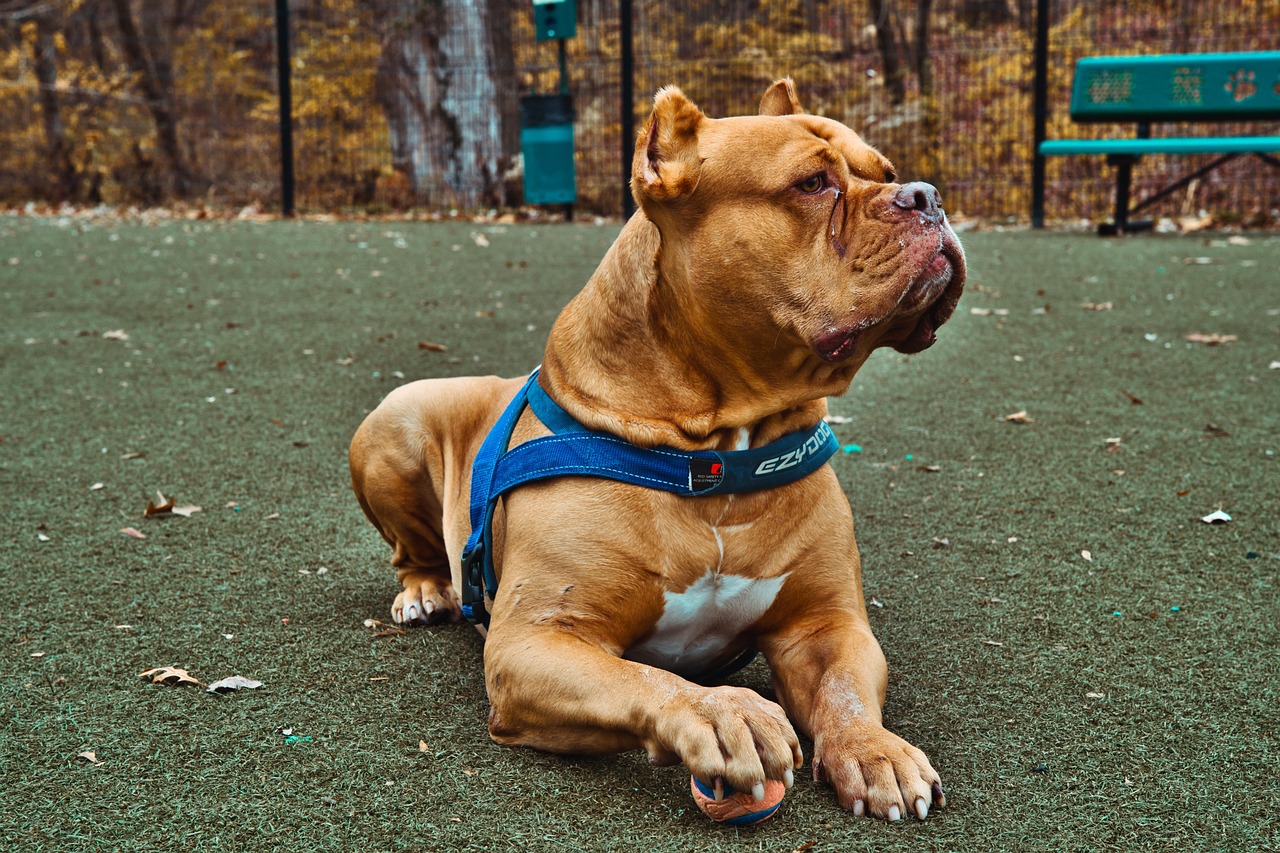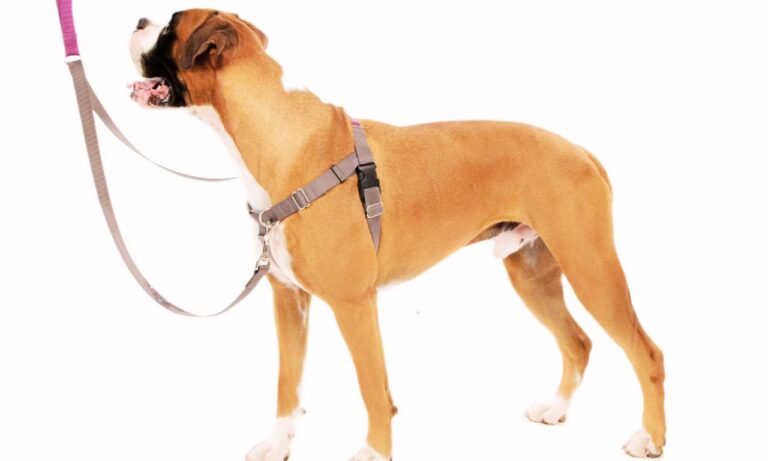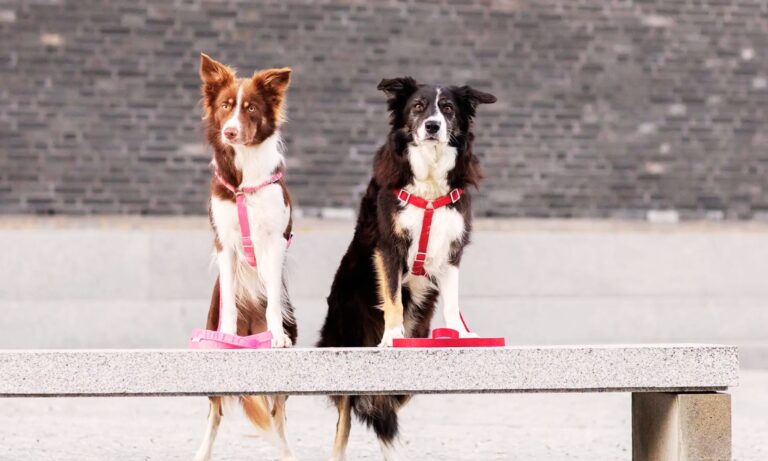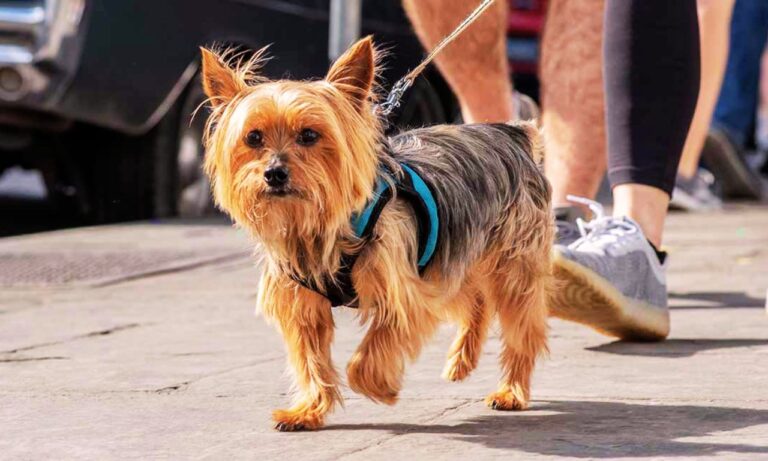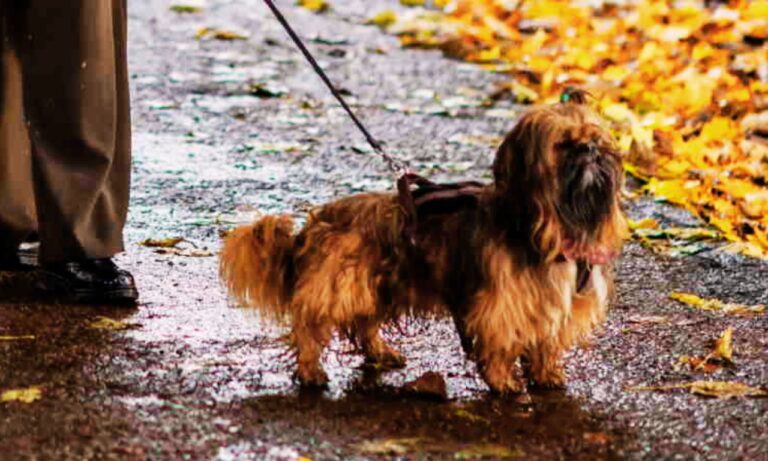| Summary: Pitbulls are not inherently aggressive towards other dogs, but their behavior can vary depending on their socialization, training, and past experiences. Proper socialization from a young age, consistent training, and positive reinforcement can help prevent aggression. Some pitbulls may still exhibit dominance or territorial tendencies. |
Pitbulls are a breed surrounded by controversy and misconceptions. Known for their muscular physique and powerful bite, they are often associated with aggression, particularly towards other dogs. However, the question of whether Pitbulls are inherently aggressive toward other dogs is more complex than the stereotypes suggest. So, are pitbulls aggressive towards other dogs?
I will delve into the various factors that can influence a Pitbull’s behavior toward other dogs, shedding light on whether these dogs are naturally aggressive and how their upbringing, environment, and socialization affect their interactions.
Learn what size collar for a Rottweiler is ideal by following this detailed guide to ensure a perfect fit for your dog’s comfort and safety. Owner responsibility and breed education are key to avoiding negative behavior. Dog training equipment builds discipline and proper social conduct.
Blog Highlights
ToggleQuick Fix Table: Are Pitbulls Aggressive Towards Other Dogs
| Cause | Quick Fix |
| Lack of Socialization | Early exposure to various dogs and environments |
| Territorial Behavior | Training “leave it” and “stay” commands |
| Dominance Issues | Reinforce obedience and proper leadership |
| Fear or Anxiety | Gradual desensitization and controlled interactions |
| Previous Trauma | Consult a professional trainer for behavioral issues |
Understanding Pitbulls: A Brief Overview
Before we can dive into the question of whether Pitbulls are aggressive toward other dogs, it is essential to understand the breed itself. The term “Pitbull” is often used to refer to several breeds, including the American Pit Bull Terrier, American Staffordshire Terrier, and the Staffordshire Bull Terrier. These dogs are known for their muscular build, high energy levels, and loyalty.

Pitbulls were initially bred for bull-baiting and later as farm dogs, where they were expected to work alongside humans and other animals. Over time, their reputation has been marred by negative associations, largely due to media coverage of attacks and incidents involving this breed. Despite their muscular appearance, many Pitbulls are gentle, affectionate, and friendly, especially when raised in a loving, stable environment.
You can learn whether Dachshunds need special collars and find expert recommendations in this article: Do Dachshunds Need Special Collars. Many Pitbulls live peacefully with other pets when raised in stable, well-guided homes. Electronic dog collars reinforce training commands in high-distraction situations.
Are Pitbulls Naturally Aggressive Towards Other Dogs?
One of the most persistent myths about Pitbulls is that they are inherently aggressive toward other dogs. While it’s true that any dog, regardless of breed, can exhibit aggressive behavior under certain circumstances, it’s important to recognize that aggression is not a breed-specific trait. Various factors contribute to aggression in dogs, including genetics, socialization, training, and environment.
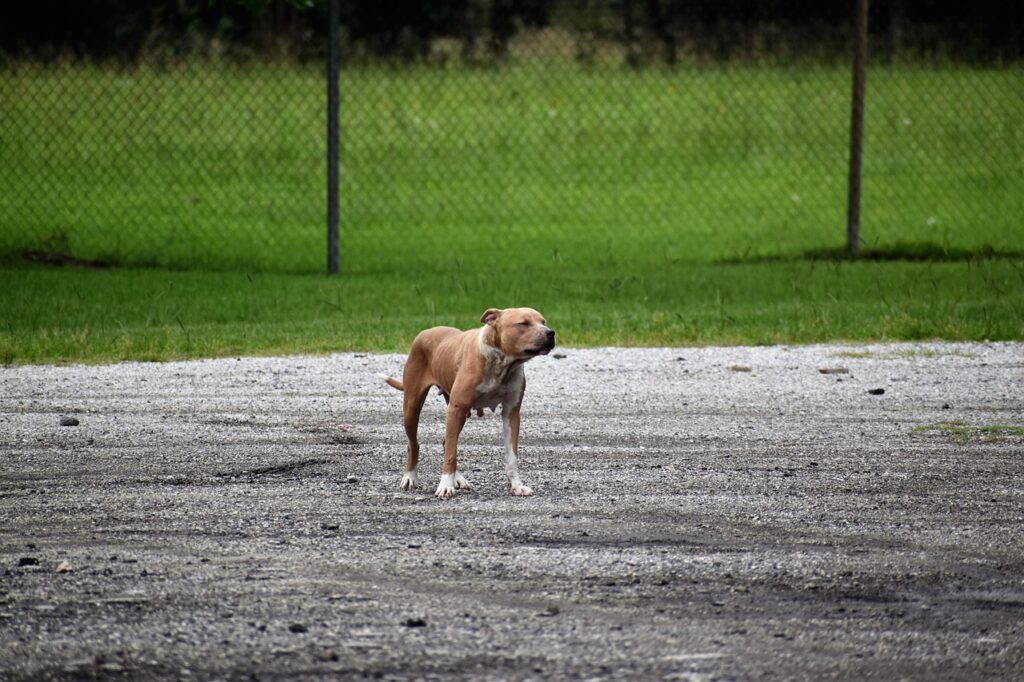
1. Genetics and Breed History
Pitbulls were originally bred for tasks that required strength and tenacity, such as bull-baiting and guarding. These tasks necessitated a dog that could handle itself in potentially dangerous situations. However, it is essential to note that aggression toward other animals, particularly dogs, was not a primary trait for which Pitbulls were selected. In fact, many early breeders sought out dogs with a calm and reliable temperament around people and other animals.
Modern Pitbulls, especially those bred as family pets or working dogs, are typically not aggressive by nature. That said, some lines may have a more intense prey drive or guarding instinct, which could contribute to aggressive behaviors if not managed properly. Overall, genetics can influence a Pitbull’s temperament, but it does not guarantee aggression, especially when proper care and training are provided.
2. Socialization and Early Exposure
Socialization plays a critical role in a dog’s behavior. Dogs that are not adequately socialized during their early developmental stages are more likely to display aggression toward other animals, including other dogs. Pitbulls are no exception to this rule.
- Puppy Socialization (8-16 Weeks): Early socialization during the critical period (8 to 16 weeks) is vital. Exposing a Pitbull puppy to a variety of other dogs and animals in a controlled and positive environment will help the dog develop the skills necessary to interact calmly and confidently with others.
- Lack of Socialization: If a Pitbull is not properly socialized and is kept isolated from other dogs during its formative years, it may become fearful or territorial. Fearful dogs are more likely to display aggressive behaviors, including growling, lunging, or biting when confronted with unfamiliar dogs.
The American Staffordshire Terrier’s coat type is short, sleek, and easy to maintain with regular brushing.
Common Triggers for Aggression in Pitbulls Toward Other Dogs
While aggression is not a breed-specific trait, there are certain factors that can trigger aggressive behavior in any dog, including Pitbulls. Understanding these triggers can help prevent unwanted behavior and promote healthy interactions with other dogs.

1. Territorial Behavior
Pitbulls, like many other breeds, may become territorial, especially if they perceive another dog as a threat to their home or personal space. Territorial aggression can be more pronounced in intact males or dogs that have not been properly socialized.
- Signs of Territorial Aggression: Growling, barking, and standing in front of their owners or property, such as their home or yard, may indicate territorial aggression. Pitbulls may also show signs of aggression when another dog enters their space.
2. Resource Guarding
Pitbulls are sometimes prone to resource guarding, a behavior where they become aggressive over food, toys, or attention. If a Pitbull feels that its food or toys are being threatened by another dog, it may display aggressive behavior.
- Resource Guarding Triggers: Food, toys, and even human attention can trigger resource guarding. It’s essential for owners to monitor and manage these behaviors, especially if there are multiple dogs in the household.
3. Unneutered Males and Dominance
Male Pitbulls, particularly those that are not neutered, may exhibit dominance behaviors toward other dogs. This can sometimes result in aggressive encounters, especially if the other dog challenges the male Pitbull’s dominance.
- Male Aggression: Aggression between male dogs, particularly if they are not neutered, is more common in some breeds, including Pitbulls. Neutering can help reduce dominance-driven aggression in males.
4. Fear or Anxiety
Fear is one of the most common causes of aggression in dogs. If a Pitbull is scared or feels threatened by another dog, it may respond aggressively in an attempt to protect itself. This is often seen in dogs that have had negative experiences with other dogs in the past, such as being attacked or bullied.
- Fear-based Aggression: Dogs that have been mistreated or have experienced traumatic events may develop fear-based aggression. In these cases, the dog may react aggressively to other dogs as a defensive mechanism.
The best collar size for an American Staffordshire Terrier ensures a comfortable and secure fit for your dog during walks and training. Early socialization, neutering, and obedience training can reduce inter-dog aggression. Pet tech products offer tools to support behavioral tracking and training.
Training and Managing Aggression in Pitbulls
While Pitbulls may be more prone to certain triggers that could lead to aggressive behavior, it is important to understand that aggression can be managed with the right training and care. Here are some strategies to help prevent and address aggression in Pitbulls:

1. Early Socialization
As mentioned earlier, socializing a Pitbull at a young age is crucial in preventing aggressive behavior toward other dogs. Puppy classes and exposure to other dogs in safe, controlled environments will help your dog learn appropriate behavior and develop confidence around other animals.
- Socialization Milestones: Between 8 to 16 weeks of age, Pitbulls should be exposed to various environments, people, and other dogs. Positive interactions during this period lay the foundation for good behavior as adults.
2. Positive Reinforcement Training
Positive reinforcement is one of the most effective training methods for managing aggression. Rewarding your Pitbull with treats, praise, or toys for calm behavior around other dogs will help reinforce non-aggressive responses.
- Rewarding Calm Behavior: Whenever your dog interacts peacefully with another dog, reward it with treats or praise. This reinforces the idea that calm, non-aggressive behavior results in positive outcomes.
3. Correcting Aggressive Behavior
If your Pitbull exhibits aggressive behavior toward other dogs, it is essential to correct it immediately but calmly. Yelling or using harsh punishment can escalate the aggression. Instead, redirect your dog’s focus onto a more appropriate behavior, such as sitting or focusing on you. Pitbulls may show aggression toward other dogs due to their terrier lineage, but it varies widely by individual. GPS dog collars help monitor them during social interactions.

- Leash Control: During walks, always keep your dog on a leash to prevent aggressive encounters with other dogs. If your dog shows signs of aggression, redirect its attention to you by using commands and rewards.
4. Professional Training and Behaviorists
For more severe cases of aggression, it may be necessary to seek professional help. Experienced trainers and canine behaviorists can assess your Pitbull’s behavior and help develop a customized training plan.
Conclusion: Pitbulls and Their Interaction with Other Dogs
In conclusion, Pitbulls are not inherently aggressive toward other dogs. Aggression in this breed, like in all breeds, is influenced by a combination of genetics, early socialization, environment, and training.
While certain behaviors may be more common in Pitbulls due to their territorial and guarding instincts, these traits can be managed with proper socialization, training, and responsible ownership.
By understanding the factors that contribute to aggression and implementing the right training techniques, Pitbulls can coexist peacefully with other dogs. They are loyal, intelligent, and loving dogs that, when properly raised, can form strong bonds with both humans and other animals.
Therefore, the key to preventing aggression in Pitbulls lies in proactive socialization, positive reinforcement, and responsible ownership. Hope so, now you know the answer: Are pitbulls aggressive towards other dogs?
To find out the what size collar for an Affenpinscher, ensure you measure your dog’s neck correctly for a perfect fit.

